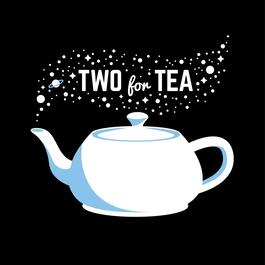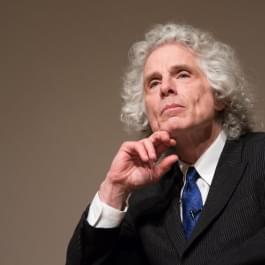
131 - Steven Pinker - Rationality
General Visit Steven’s website, which includes information about all his books, including his latest, ‘Rationality’, and how to purchase them: https://stevenpinker.com/ Follow Steven on Twitter: https://twitter.com/sapinker Timestamps 00:00 Opening and introduction. 2:17 The conventional wisdom that humans are irredeemably irrational is wrong: rationality is actually prevalent and innate. Iona reads passages from Steven’s newest book ‘Rationality: What It Is, Why It Seems Scarce, Why It Matters’ about the “scientific mindset” of hunter-gatherers. 8:09 The evolution of human rationality - our “environmental/ecological rationality.” The “premature consensus” that humans are fundamentally irrational. But why are we so bad at dealing with logical problems in the modern world? How to reconcile this apparent paradox - a new conceptualisation of human rationality: we become expert logicians when logical problems are presented in concrete, human-relevant ways and when we are pursuing goals. 18:32 William James’s example of Romeo and Juliet as rational actors pursuing a goal (as opposed to iron filings attracting each other). 21:05 An analogy with quantum theory’s unintuitiveness. The mismatch between our ancestral environment(s) and our modern environment(s): we didn’t evolve to apply the tools of science. The roots and varieties of irrationality. 25:16 How does ‘Rationality’ relate to Steven’s other work? What is the common thread throughout all of his work? 35:28 On lightly held irrational beliefs - distal vs. testable beliefs, the “willing suspension of disbelief”, and indulging in irrationality. Why do we hold such beliefs? Why does fiction appeal to us? The Enlightenment paradigm of verifying one’s beliefs - revolutionary and almost unique in history, a mindset that we are not adapted to. 46:45 The real meaning of David Hume’s famous statement that “Reason is, and ought only to be the slave of the passions, and can never pretend to any other office than to serve and obey them.” 48:55 How do we get an ought from an is? How can morality be derived from rationality? Iona reads a passage from ‘Rationality’ dealing with these questions. Steven explains his view of how reason relates to ethics. 54:53 How can reason be justified in the first place? Isn’t it circular to justify reason using reason? 59:17 Base rates and group differences - does a contradiction between rationality and morality lie here? 1:07:27 Difficulties in defining categories and the family resemblances solution. Iona reads a passage about pattern-finding, stereotypes, and fairness from ‘Rationality.’ Using abstract rules to set aside stereotypes for purposes of law, morality, etc. Logic vs. rationality. 1:13:46 Rationality’s relationship to progress. Many social justice movements have begun with appeals to rationality and logical coherence: how can a society claim, for example, to be against absolute monarchy yet allow men to have total power over their wives? How rationality is a good guide to which movements for change deserve support. 1:18:00 How highfalutin methods of logic and reasoning are in fact at the centre of our everyday lives - we just formalise them and we need to apply them more at all levels. 1:25:05 The current “pandemic of poppycock” - is Steven optimistic about the future of rationality? 1:28:16 Iona reads a passage from the end of ‘Rationality.’ 1:28:55 Last words and outro.
From "Two for Tea Podcast"




Comments
Add comment Feedback